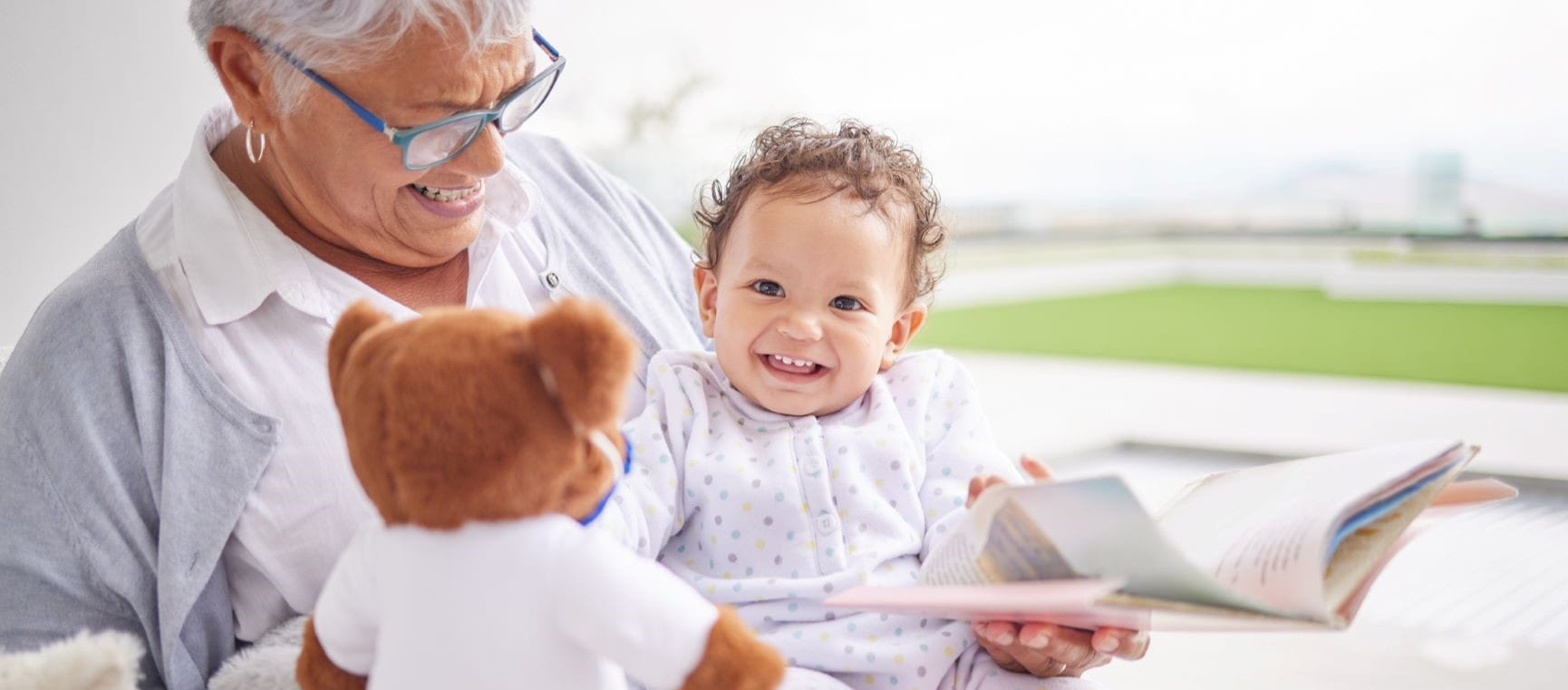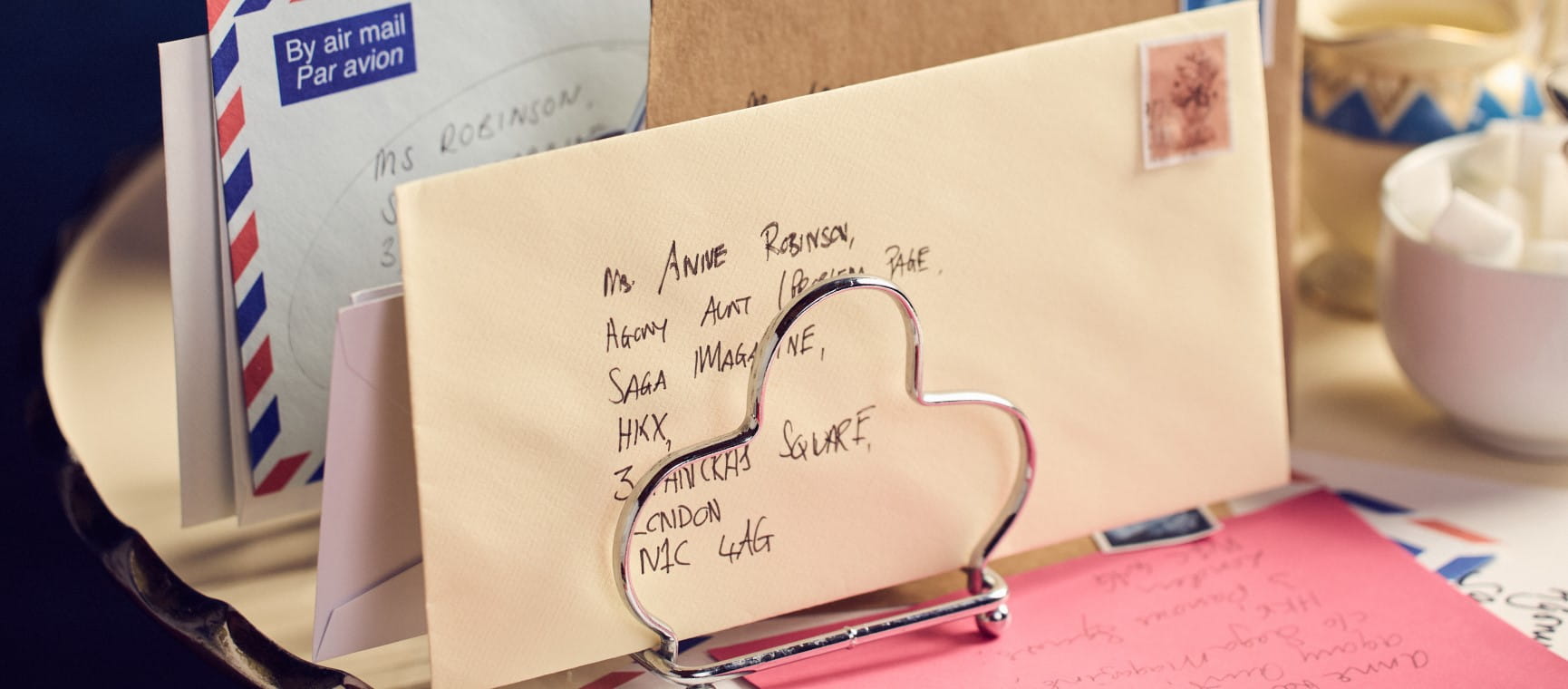
The pleasures and complications of becoming a grandparent took me by surprise. As a younger generation was born into our family, everyone’s position changed. I was now a mother of a mother, intimately connected to an infant whose care was under someone else’s control.
When my eldest grandchild was born, I couldn’t find a satisfactory script for ways to engage with him without falling into outdated stereotypes of mild-mannered admirer or awkward stepper on the new parents’ toes.
If I phoned to offer support, I found I’d awakened my daughter from a much-needed nap. If I brought dinner when I visited, I was disrupting their well-organised kitchen. If I reached out to calm the baby when the parents couldn’t, my efforts generated a sigh, sometimes even tears.
And so, as a psychologist and academic at the University of Cambridge who for decades has explored the intricacies of family relations – from teenagers’ clashes with parents to in-laws adjusting to new kin – I belatedly challenged my ignorance about the role one in every three of us over the age of 50 experiences: grandparenting.
Through close observations and in-depth interviews with 72 grandparents and their 32 different families, an entirely new perspective opened before me. I had people telling me to write about setting boundaries around childcare and others who shared their heartbreak about not seeing enough of their grandchildren.
I found there are multiple ways of being a ‘good’ or successful grandparent whose love has a positive impact on younger generations.
I’ve drawn on my own experience of being a grandmother to four grandchildren, aged 13, 10, 9 and 6, and in my new book, Grandparenting, my approach is pragmatic rather than dogmatic.
I explore the role as a series of questions about what works across different generations. It’s not a rulebook, but a register of things to watch out for, things to try, and possible ways to mend inevitable breaches among the people who matter most to us.

Many new grandparents have their eagerness to ‘help out’ rebuffed by their son or daughter. ‘Why,’ you may wonder, ‘are they so easily annoyed when I try to soothe the crying baby? I’m trying to help but end up offending them'.
There’s a reason for this: new parents want to be experts on their baby and its needs, but they know they’re not – yet. They’re learning quickly how to interpret the child’s cries, breathing and movements, which involves huge mental effort (leading to ‘baby brain’). Directives from their experienced parents can interfere with this.
Try not to adopt an ‘I know best’ tone. Grandparents, I found, often speak with a distinctive, commanding voice – as veterans of parenthood – but a new parent is irritated by the presumption of better knowledge
Accept your company and input will be welcome sometimes, but perhaps not every time.
If a new parent tells you, ‘Don’t interfere’, don’t take it as a general rejection.
The irritability is usually directed towards a specific remark at a specific time, and probably influenced by fatigue or anxiety, so cut them some slack.
New parents’ touchiness usually subsides as they grow in confidence – and get a good night’s sleep.
You’ll inevitably have views about your grandchildren’s upbringing, on everything from diet and discipline to education. But beware: good-faith utterances like ‘A little ice cream won’t do any harm’ can annoy your children and be abruptly closed down.
No wonder common advice is to avoid expressing your views. But, although self-silencing might avoid conflict in the short term, it puts a strain on communication and traps us in ‘the good behaviour syndrome’ where conversation becomes an exchange of superficial pleasantries.
I suggest that the ideal solution is to speak out with as much tact as possible, even if it leads to argument. Frame views as a question put to the parent as the child’s CEO. So instead of, ‘She’s tired. She needs to sleep,’ you could say, ‘I wonder if she’s just tired. What do you think?’
And if views about diet or discipline have slipped out like some authoritarian directive, minimise damage with a follow up like, ‘Well, that’s my view, but of course what matters is your view.’

The claim that grandparents ‘spoil’ their grandchildren is another heated topic between the generations. Some use grandparenting as an excuse (‘Well, that’s what we’re here for’), leaving mums and dads to complain bitterly that the grandparents are not respecting boundaries.
An obvious approach is not to break parents clearly set out rules about what (not) to gift or allow. If parents set bedtime at 7pm, then the babysitting grandparent should stick to that. If parents don’t want their child to have designer clothes or digital devices, then however much a grandparent would delight in giving their grandchild what they think they want, the parents’ wishes take priority.
There are exceptions when you could let your grandchildren follow your own family rules, even when these differ from a parent’s.
If they are staying with you for the weekend, for example, your preference for them to eat dinner with you at the table can be upheld and cries of ‘Mummy lets me eat on the sofa’ ignored.
Equally, a child who has to be dressed before eating breakfast with Mum and Dad might enjoy a less regimented morning with a grandparent. Children are quick to distinguish their parents’ rules from those of their grandparents: they’re not going home with unrealistic expectations.
A common theme which emerged in the families I observe is that of a ‘his parents versus her parents’ story. Many new mothers value a maternal grandmother’s company, but find a paternal grandmother’s presence stressful. It’s often easier to resolve differences with one’s own parents – after all, you’ve had years of practice. But note some new parents find it less stressful dealing with a partner’s parent because there is no baggage from previous conflict and criticism.
Tension between a daughter-in-law and mother-in-law usually harks back to issues about who’s in charge and who knows best. Adopt a watch and wait approach that shows respect for the new mum’s wishes.
‘Can I pick up the baby?’ goes down better than following the impulse to rush forward and hold your new grandchild close.
‘Let me know a good time to visit’ is more subtle than, ‘I can’t wait to visit’, or, ‘I’ll be there tomorrow’.
It positions the grandparent as someone who rightly expects to visit while reassuring the new mum that she has control over the timing of the visit.
If paternal grandparents feel shut out, you have every right to speak up – but the conversation should start with your own child. Without blaming a daughter-in-law for being cold, unkind or unwelcoming, ask your son how your visits and offers of care can help rather than hinder.
It may take a while for the new father to formulate an answer. He himself may not even see the undercurrents of discomfort. Show that you are trying to understand and improve, not air a grievance.
Whether its helping with pocket money or gifting a house deposit, the experts at Saga Money explain the most effective ways of giving money to your grandchildren, whatever their age.
.jpg?sc=max&mw=800&h=450&la=en&h=549&w=824&hash=C2747FD596A738DE037100D9EB53EBC7)
Grandparents’ input gains value over time, especially when baby number two comes along, and you can help out with grandchild number one. I had the huge privilege of looking after my grandson when his younger sister was being born. I spent the morning with him, building train tracks that extended from the kitchen to the sitting room, until we got the go-ahead to visit the hospital, where I held his hand as he was introduced to his new sister.
My frequent visits were now uncomplicatedly helpful, as I focused on him, and allowed his parents to get to know their new child’s needs.
There are many other opportunities to step up and flex our value to our children and grandchildren. Teens sometimes find reprieve from tensions with their parents by being with a grandparent, who then has the opportunity to get to know this rapidly developing grandchild better.
Some grandparents fear their grandchildren will lose interest in them when they become teenagers, but the opposite is often the case.
In fact, research shows that teen boys often say the person they most trust in their family is a grandparent.
Grandparenting: On Love and Relationships Across Generations by Terri Apter (September Publishing, £14.99).

Every issue of Saga Magazine is packed with inspirational real-life stories, exclusive celebrity interviews, brain-teasing puzzles and travel inspiration. Plus, expert advice on everything from health and finance to home improvements, to help you enjoy life to the full.

The ultimate guide to Saga Puzzles, full of technical tips, tricks and hints.

With the start of the new financial year on 6 April, our money expert explains the changes to your pension, benefits and taxes.





